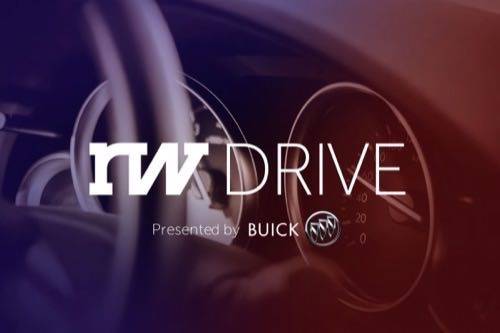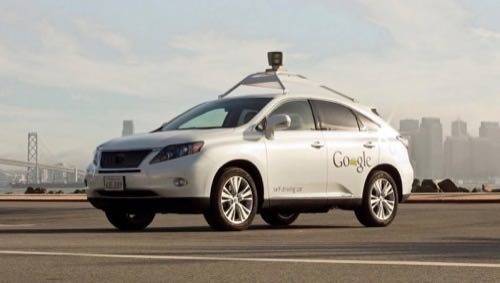
ReadWriteDrive is an ongoing series covering the future of transportation. In December, this series is presented by Buick Regal.
Google’s autonomous car is a media darling, often portrayed as a techno-marvel that will free the world’s commuters from the burden of operating motor vehicles. At the 2013 Los Angles Auto Show last month, Ron Medford, director of safety for self-driving cars for the search giant, described the robotic vehicle program by invoking the company’s “don’t be evil” credo:
We certainly hope that our friends in the auto industry [and others] don’t see us as anything but another way in which we’re trying to do good for the world.
By that, I assume Medford means safer driving and motorists able to reclaim hours lost to road tedium for more productive tasks. That well could be true.
But consider this: American drivers, by conservative estimates, spend an hour a day behind the wheel—just about the only time we don’t have our eyes glued to screens. If even a small portion of America’s 200,000 or so drivers are turned into online media consumers for that hour, with the Google car doing the driving and Google ads served up along the way, Google benefits big time.
Some people might have qualms about trusting sensors, radars, cloud-supplied road data, and onboard processing power. That doesn’t concern me so much. The margin of error for computers, I believe, is much lower than what results from human fallibility. What does bother me is how Google, once it has us in its vehicles, will “optimize” our in-car experiences.
Next Turn: The Matrix
The company already knows a tremendous amount about our digital lives—web searches, media consumption, email content, purchasing behavior, social networks and physical location. That apparently isn’t enough to satisfy Google’s voracious appetite for our personal data.

In 2010, Google admitted that its Street View vehicles, equipped with camera, lasers and GPS to gather images of our neighborhoods—including couples leaving motels and protesters at abortion clinics—were intercepting emails, usernames, passwords and other data from private unprotected Wi-Fi networks. Google called the data collection a mistake, although a 2012 FCC report told a different story.
Now, with its self-driving program, Google is inviting us to step inside those cars powered by similar technology. We are being told how cool it will be to type our desired location into the self-driving car’s navigation system, take our foot off the brake and let go of the wheel. What could go wrong?
In effect, the Google’s vehicle technology car represents a shift from corporate control of the digital devices we carry to corporate control of the vehicles that carry us.
Remote Control
We already have evidence of how car companies keep tabs of our movements. In February 2013, when Tesla Motors got into a brouhaha with a New York Times reporter over the accuracy of his review, the company made its case by revealing data recorded in the vehicle’s computer system—GPS coordinates and vehicle functions that were communicated wirelessly to the company’s servers.
More recently, last month, after two of its Model S electric luxury sedans caught fire after running over road debris, the company pushed a software update to its user-driver base to raise the suspension of the vehicle during highway driving. Owners had no way to opt into (or out of) the change.
In France, Renault sells the Zoe electric car, but leases the battery for a monthly fee. (It’s a strategy to lower the initial purchase price, while assuaging consumer concerns about expensive battery packs not lasting as long as advertised.) The battery rental scheme is not the problem. The issue, which Germany’s Der Spiegel revealed, is what happens if Zoe owners fall behind in their payments. In that case, Renault can remotely disable the battery pack, immobilizing the car.
This capability, while somewhat less intense than sending out the repo man, signals the end of driver autonomy, and the beginning of an age where all cars can have their core functions and onboard computer data accessed and manipulated by automakers, governments and hackers. (When the cloud enters the picture, so does the possibility of denial of service attacks.)
What Would Big Brother Drive?
And what are we to make of the $250 million investment by Google Ventures in Uber, the ride-sharing service? Imagine an entire fleet of Google autonomous cars that can be summoned by an Uber-like app, or even a simple Google search—much the way today we seamlessly call a business on the phone after finding its number in a search result. (Wait, that is pretty cool.)
I’m not suggesting that the Google driverless car is an intentionally nefarious plot. But it’s not hard to imagine the algorithm for the routing of its autonomous cars, when influenced by other Big Data that Google and others collect, will take us not on the quickest or safest route, but the one most profitable to the company. That’s only the most benign scenario for what could happen when we relinquish the steering wheel and how the routes we take to corporate-owned machines.
“We’re working hard on a technology that can be transformative,” said Medford, a former deputy administrator of the National Highway Traffic Safety Administration. Medford explained that Google wants its self-driving cars to be available not only to rich people, but to the general population. That means me and you. “Google has big ambitions,” he said.
Images courtesy of Google





















